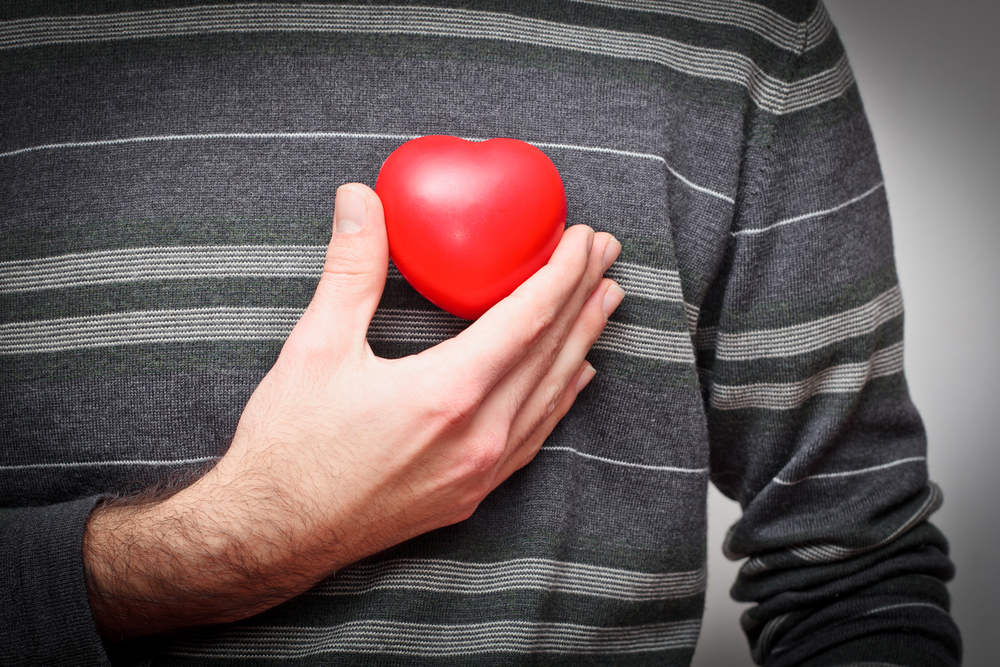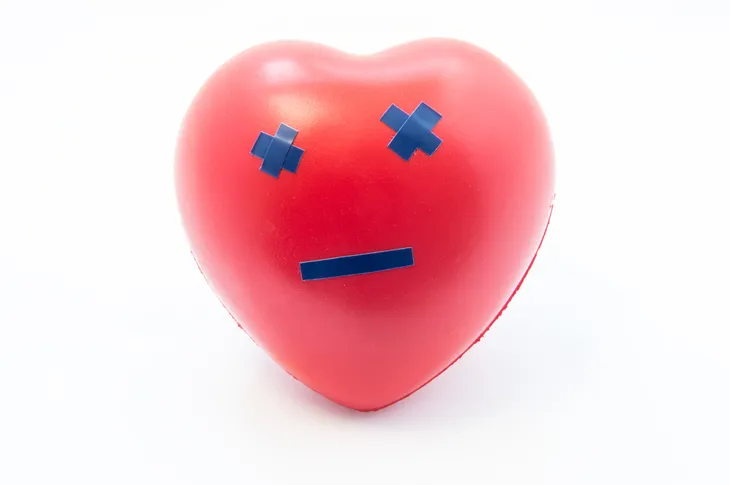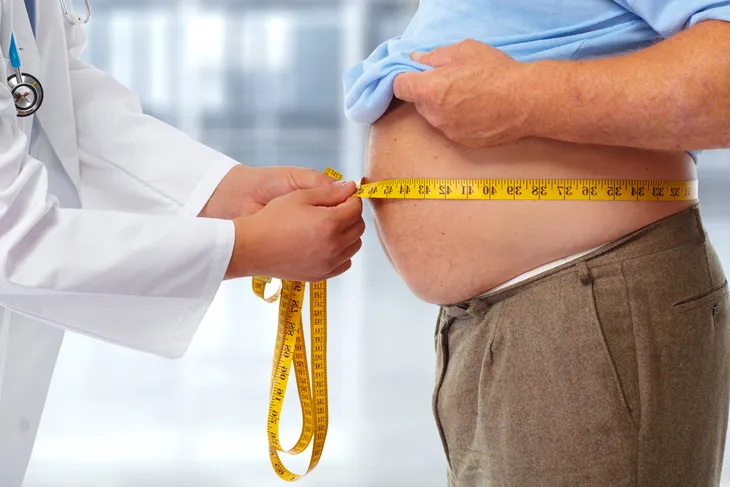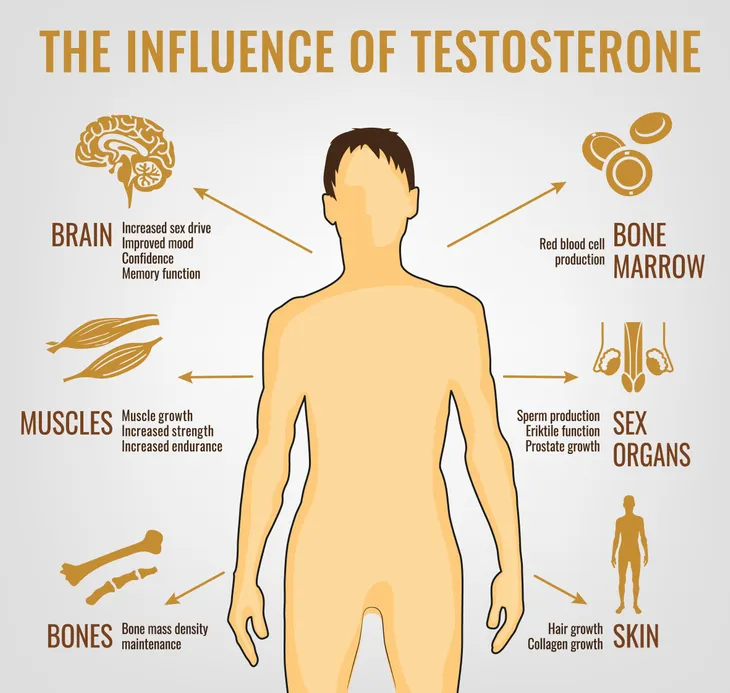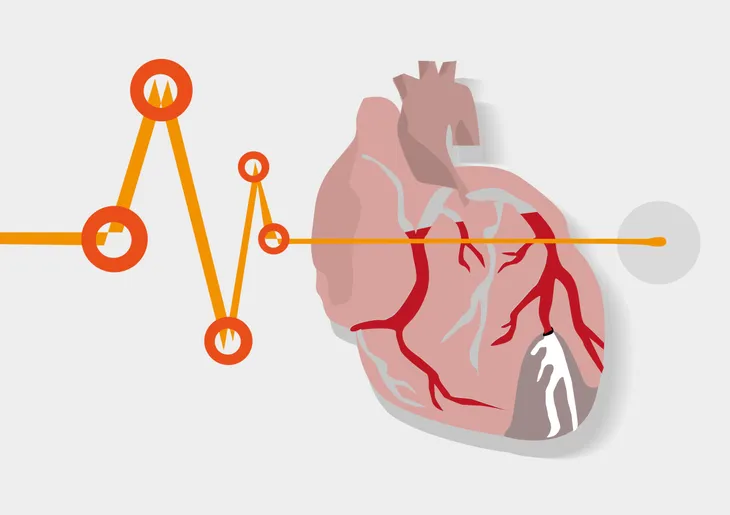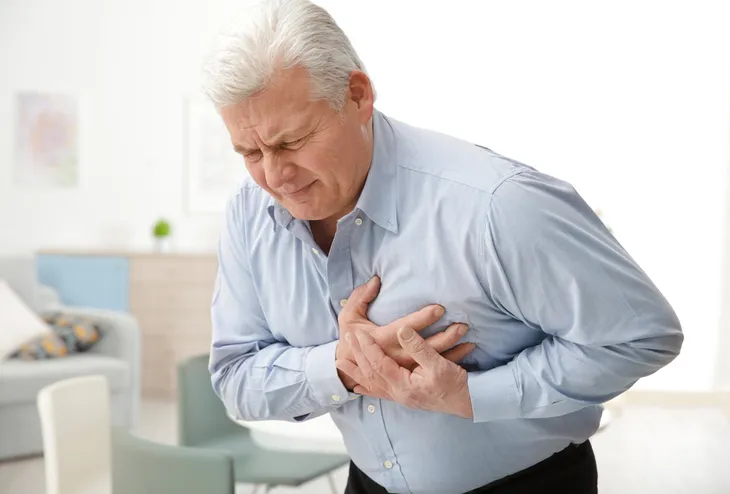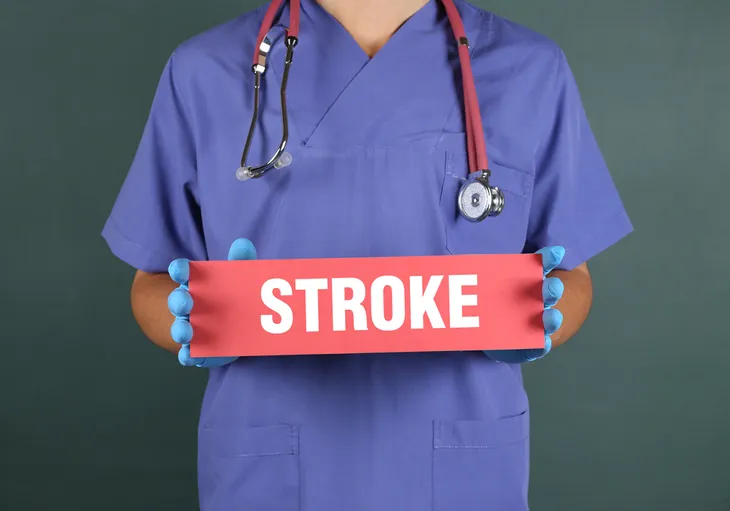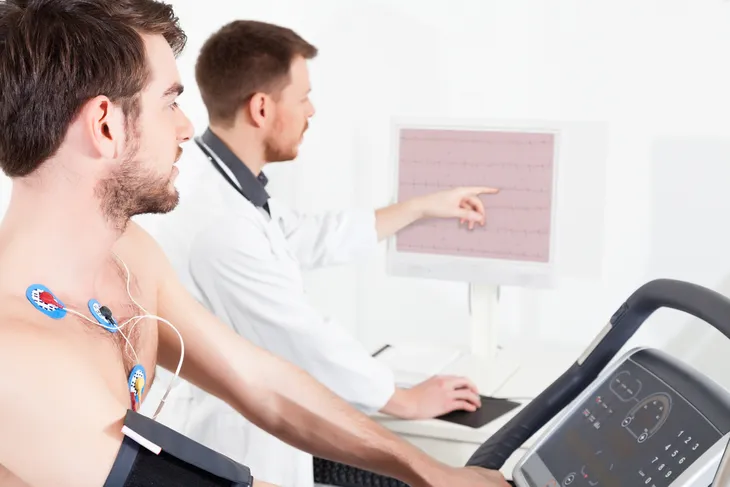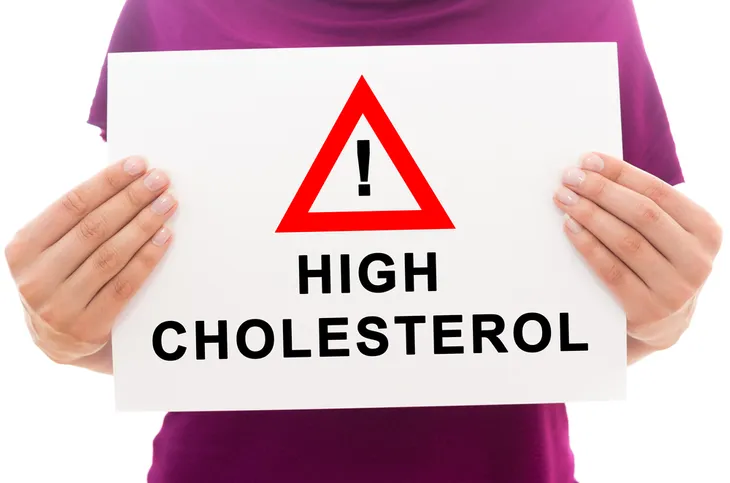Heart disease is admittedly not a fun dinnertime topic, but it’s a serious issue that men (and women) should be aware of. According to Healthline, heart disease is “one of the leading health risks facing men today,” as more than one-third of men has it.
Heart disease symptoms can differ between men and women, and men tend to have heart attacks at an earlier age than their female counterparts. However, heart attacks are only one component of heart disease, which covers a wide variety of heart ailments. Let’s look at 12 facts men should take to heart…
Defining Heart Disease
As we noted, heart disease is an “umbrella term” that covers a number of heart conditions, explains Healthline. These conditions include heart failure, coronary artery disease, arrhythmias, angina, and other heart-related infections or birth defects.
The source adds that not all heart diseases will present obvious symptoms, and you might have it and not know it or have symptoms. However, knowing risk factors is a big help, so we’ll look at those next…
Risk Factors for Heart Disease
Healthline also says a high number of men are at risk for developing heart disease, because a relatively small percentage meet the guidelines for physical activity/exercise. The source also cites statistics from the American Heart Association that say almost 73-percent of American males aged 20 or older are overweight or obese, which is a well-established risk factor for heart disease.
Other risk factors for developing heart disease include a family history of heart disease, older age, eating a diet high in saturated fat, abusing alcohol, smoking, and having high cholesterol, diabetes, or high blood pressure (hypertension).
Exclusive Risk Factors For Men: Erectile Dysfunction
Just like there are exclusive heart disease risk factors for women (i.e., being postmenopausal), men also face certain unique risks. According to John Hopkins Medicine, not being able to maintain an erection could be a sign that there’s a problem with your circulation, which includes the heart.
The source explains that arterial problems show up in the penis years before they show up in the heart, so erectile dysfunction could be a precursor to heart problems. In fact, according to the source, men in their 40s who have erectile problems (and no other cardiovascular risk factors) have an 80-percent chance of having heart problems within 10-years.
Exclusive Risk Factors For Men: Stress/Anger
Stress can literally be deadly for men, adds John Hopkins Medicine. It says that stress, anger and anxiety boost blood pressure and stress hormones, which can in turn restrict blood flow to the heart.
The source warns that in the first 2-hours following an “angry outburst,” a man’s risk of having a heart attack is almost five times higher and risk of stroke is three times higher.
Exclusive Risk Factors For Men: Low Testosterone
There’s more to low testosterone than a decreased sex drive (libido), according to the same source (Johns Hopkins Medicine). It notes that low levels of this hormone are now being linked more often to heart disease and type 2 diabetes. The source says research is uncovering that low testosterone “can be considered a cardiovascular and metabolic risk factor.”
Metabolic syndrome, meanwhile, can mean high blood sugar, high cholesterol, and too much belly fat (a so-called “apple shape”), which can in turn raise risk for heart disease.
Early Symptoms As a Warning: Arrhythmias
There are symptoms less dramatic than a heart attack that can be your body warning you about heart troubles, says Healthline. Unfortunately, a serious episode is often the first sign there’s a problem, it adds.
The early stages of heart disease can be more like “annoyances” that come and go, says the source. If you have an arrhythmia (irregular heartbeat) you might notice you’re out of breath climbing the stairs or have a lingering sense of discomfort in your chest (that lasts from 30-minutes to a few hours). You may also have “unexplained” chest pain, as well as pain in your neck and/or jaw.
Early Symptoms As a Warning: Blood Vessels
If you have heart disease, you may notice telltale signs such as chest pain (commonly referred to as angina), pain in your upper extremities (most commonly left-sided) or swelling in your lower extremities, or extreme fatigue.
These symptoms might mean your blood vessels have narrowed as a result of “plaque” buildup (clinically referred to as atherosclerosis), which makes it harder for your heart to get oxygenated blood around your body. Having high blood pressure will significantly increase heart disease risk, but there are seldom signs of hypertension, which is why it is commonly referred to as the “silent killer.”
Heart Attack Symptoms
This doesn’t necessarily mean you’ll clutch your chest and fall over, which is the common stereotype of a heart attack. You may experience pressure or squeezing in the chest that indicates a heart attack (clinically referred to as a myocardial infarction) it’s not always textbook pain, says Healthline. You could also notice discomfort in your arms, back, neck, and even your jaw, it adds.
You may also have other warning signs of a heart attack, which include shortness of breath, sweating for no reason, nausea/vomiting, and being dizzy or lightheaded, adds the source.
Stroke Symptoms
A stroke typically only affects one side of your body, with numbness and/or weakness in your face, arm, or leg, explains Healthline. A stroke can also cause confusion, trouble verbalizing words, or sudden changes in vision, it adds.
Stroke, which shares many of the same risk factors as heart disease, can also come with an “intense headache,” adds the source. Since these stroke symptoms can strike without warning, it’s important to call 911 as soon as possible if you witness the telltale signs.
Heart Disease Diagnosis
Finding heart disease in a patient often begins with a physical exam, explains Medical News Today. During the exam, your doctor will ask about any possible symptoms and identify your risk factors for heart disease, it adds.
Following the physical, a doctor can order additional tests such as a stress test to see how your heart responds to different levels of activity, explains the source. Medical professionals might also use an imaging scan (commonly referred to as a coronary angiogram) to check for blockages of blood vessels and determine their exact location. “The method for this is invasive but should not be painful,” assures the source.
The Long-Term Outlook
Unfortunately, according to Healthline, about 50-percent of men who die from heart disease don’t even know they had it. However, with a heart attack or stroke, what happens next depends heavily on being treated promptly, says the source. “Your ability to recover from one of these events depends on how quickly you receive treatment for them,” it explains.
This means you should seek medical attention if you’re concerned about having any of the aforementioned symptoms, as it can be tough to know for sure if you’re having a heart attack. Visit your doctor for checkups even when you’re in good health, adds the source.
Reducing The Risk
There’s no surefire way to avoid heart problems, but Men’s Health says there are two key factors that can lower your risk of dying from heart disease – namely, lowering both your blood pressure and cholesterol.
The source reports that about 70-percent of first-time heart attack victims have high blood pressure, while those with high cholesterol levels are almost two times more likely to develop heart disease.
